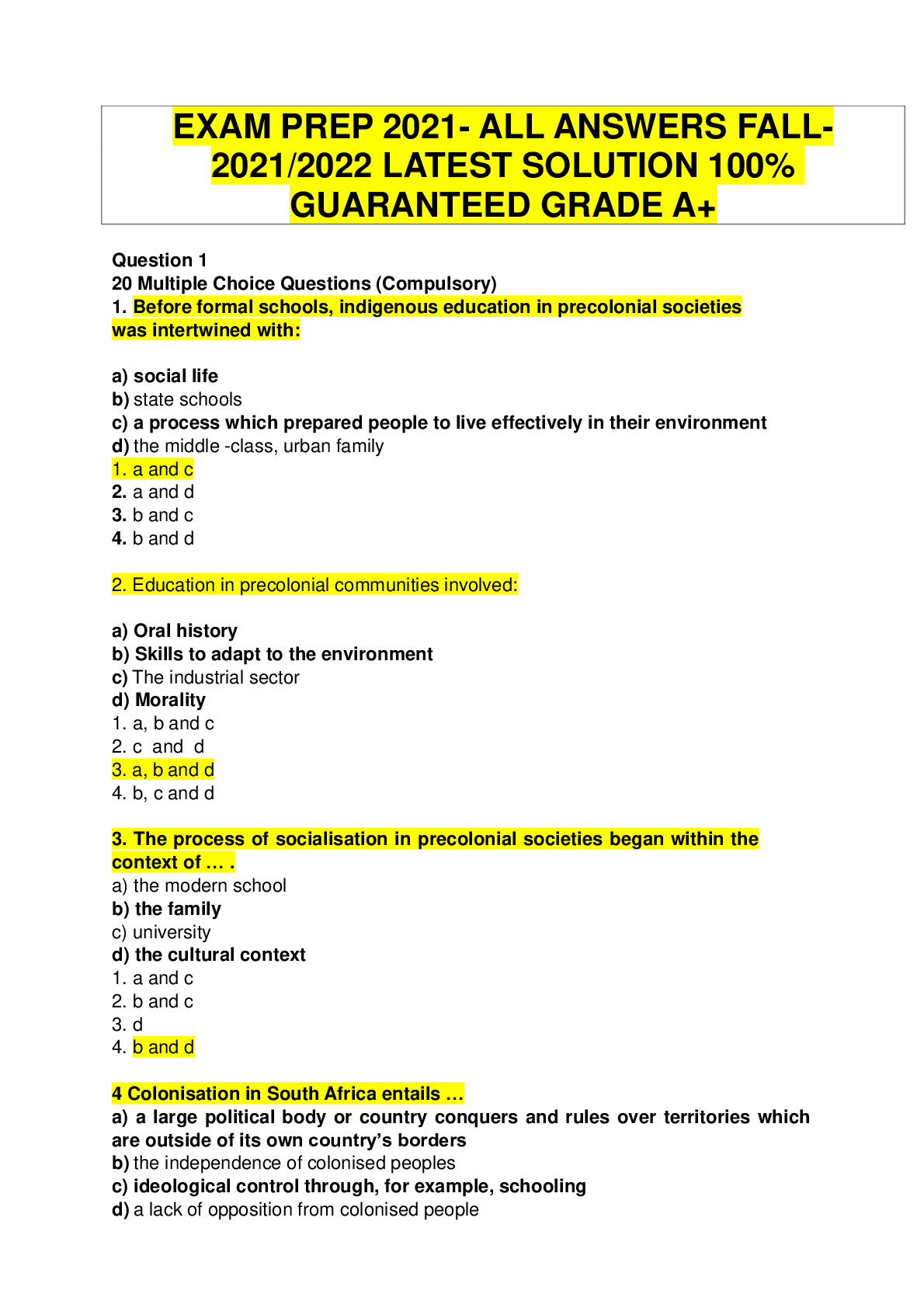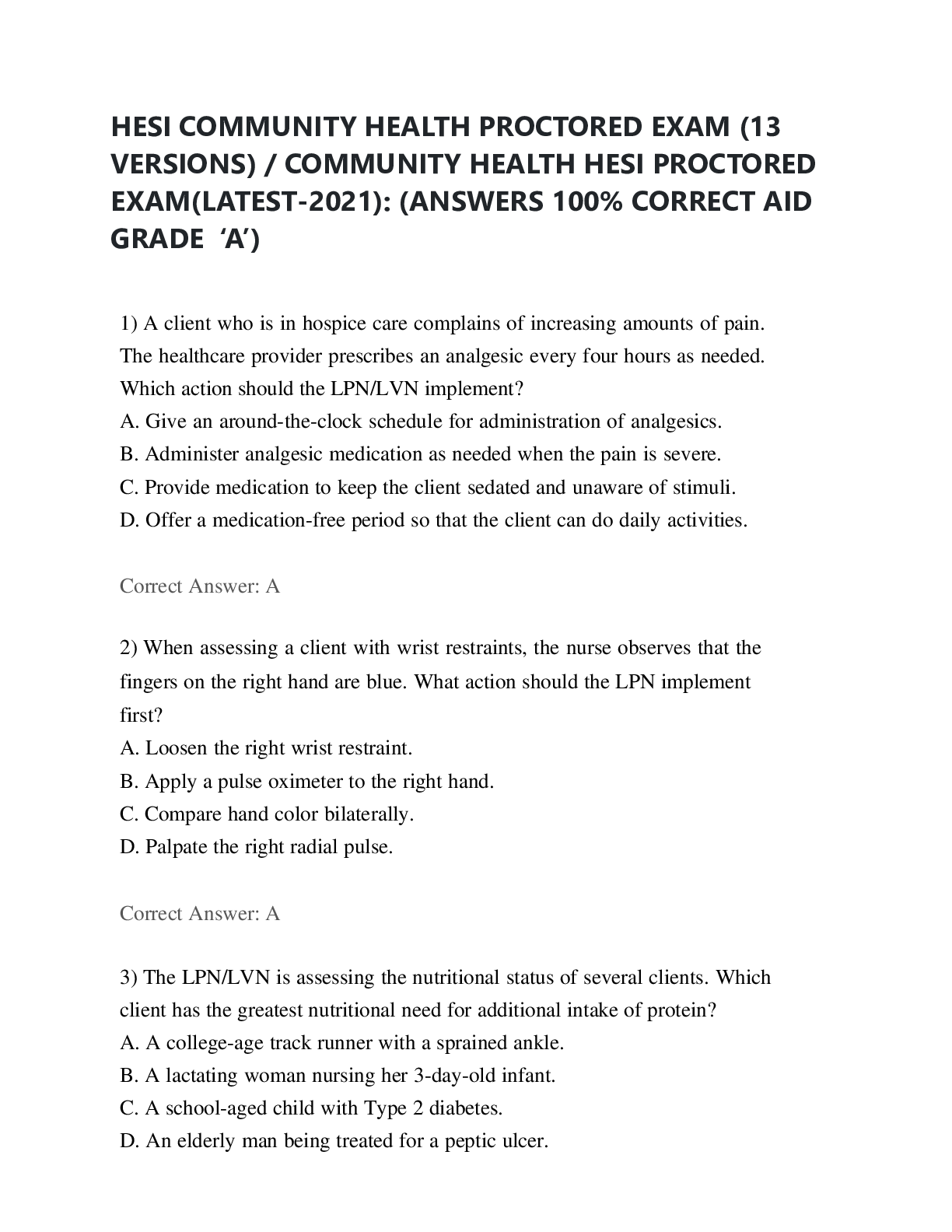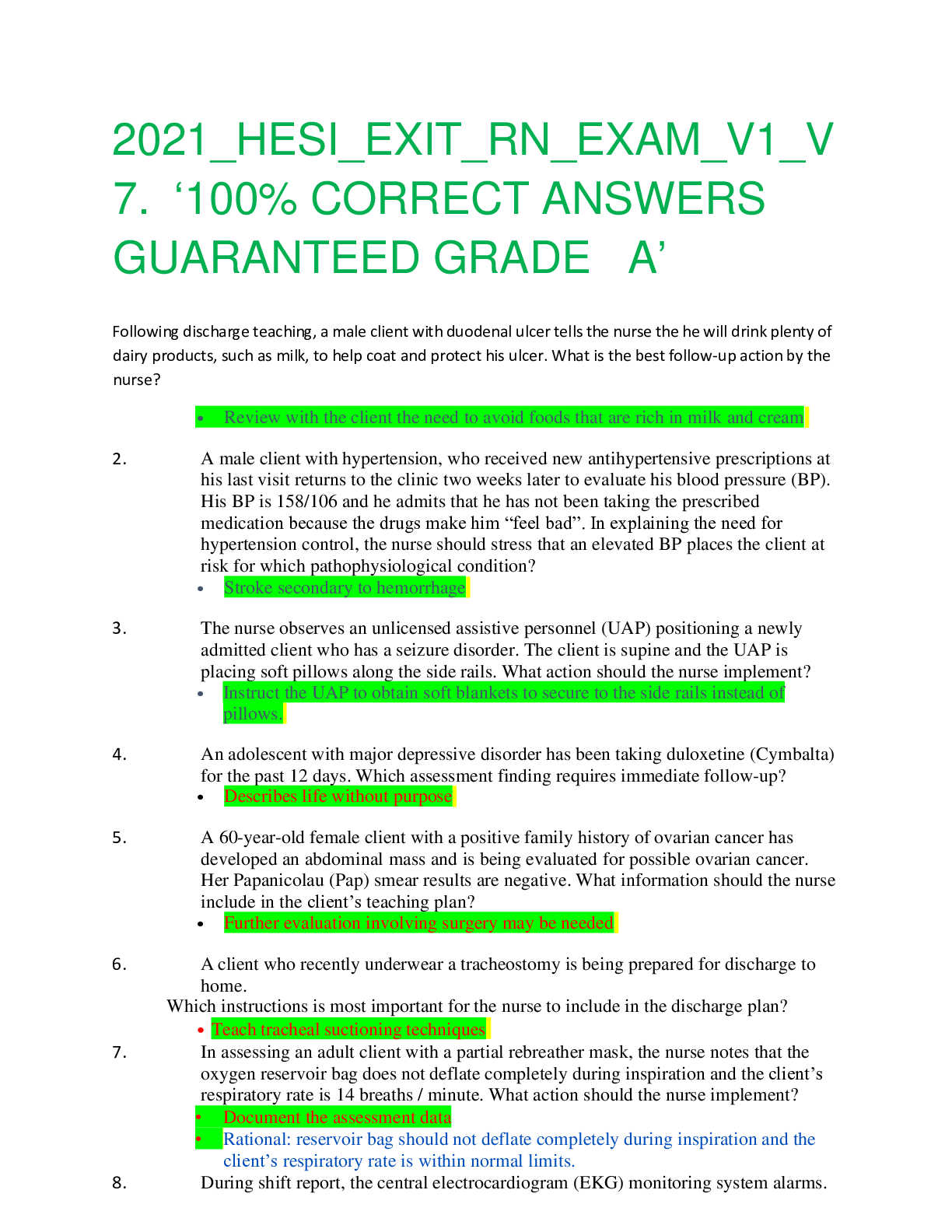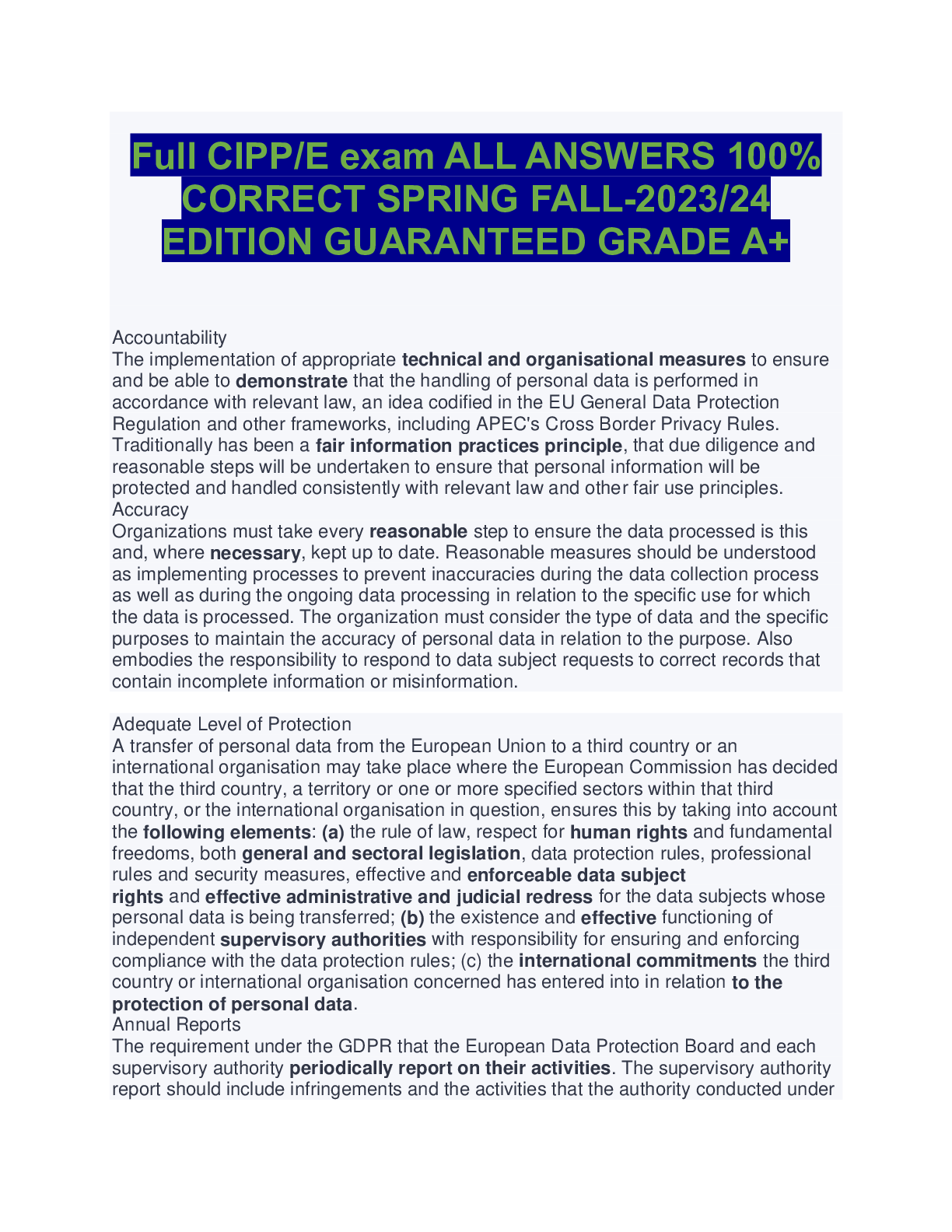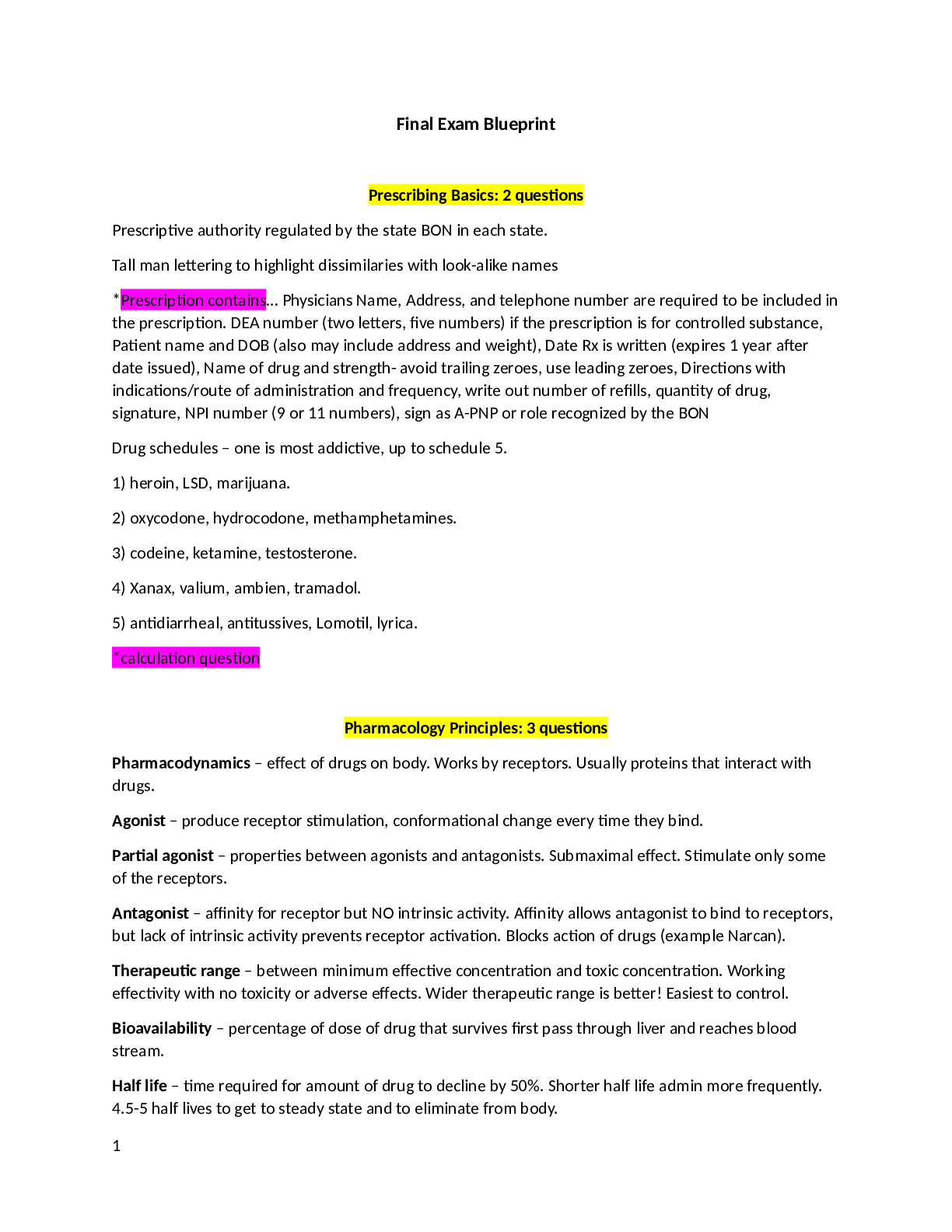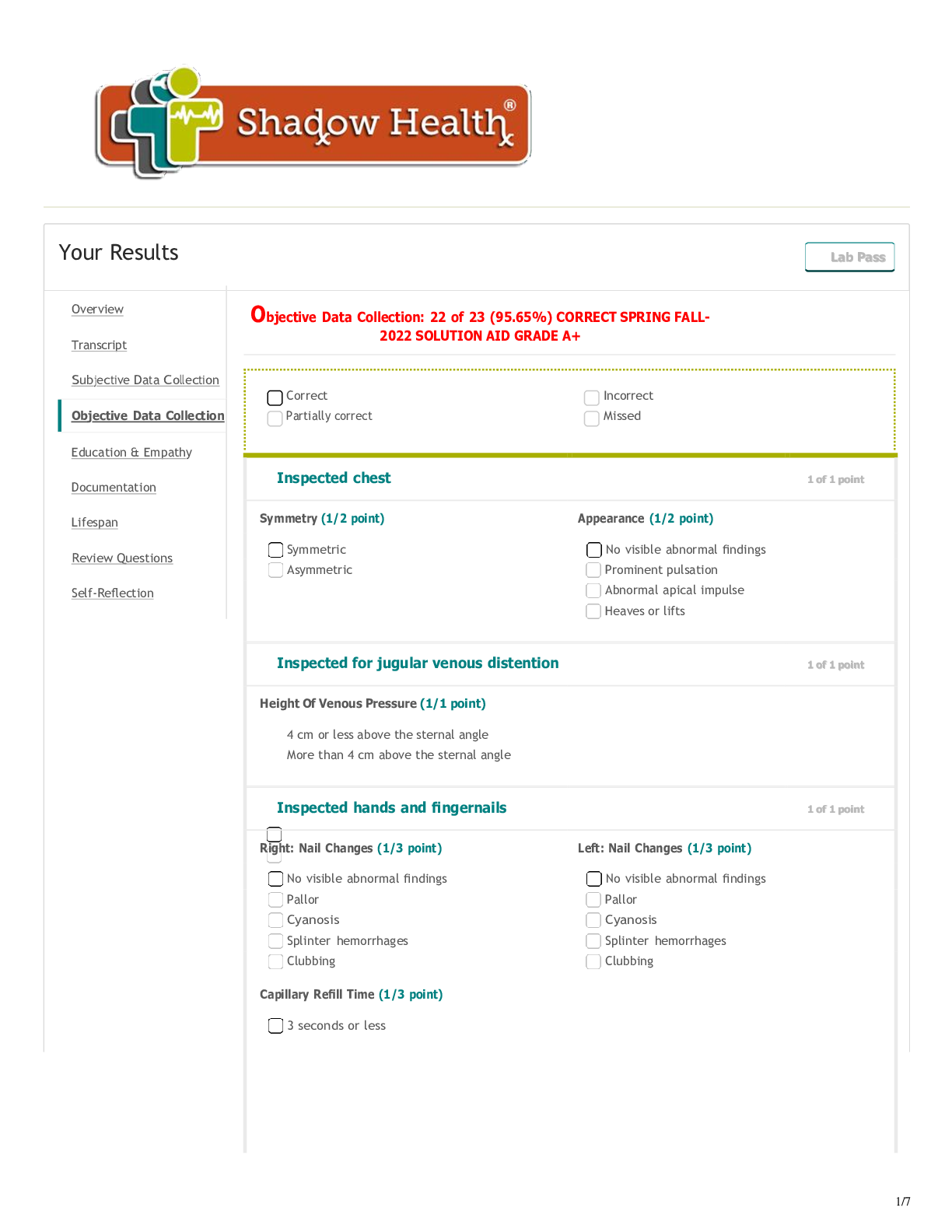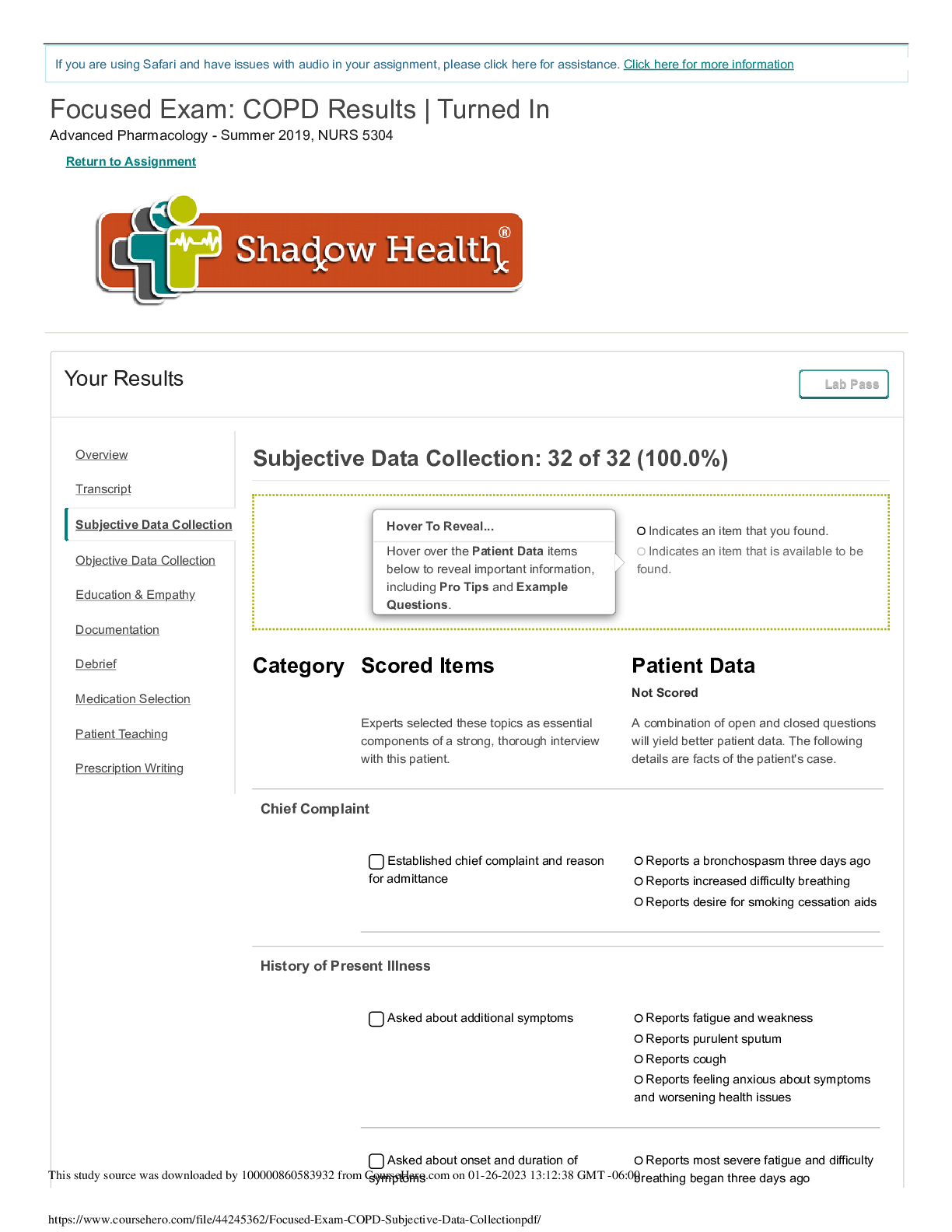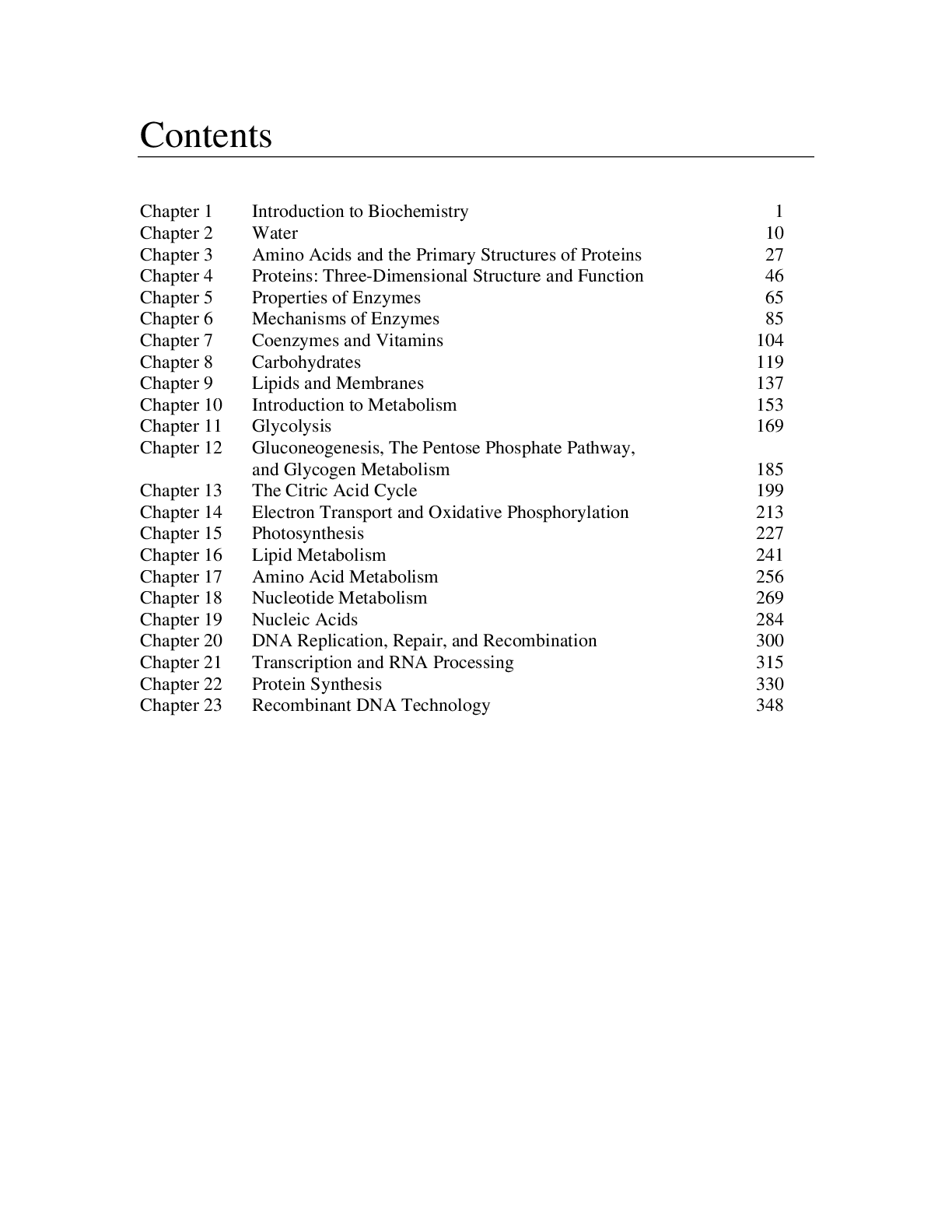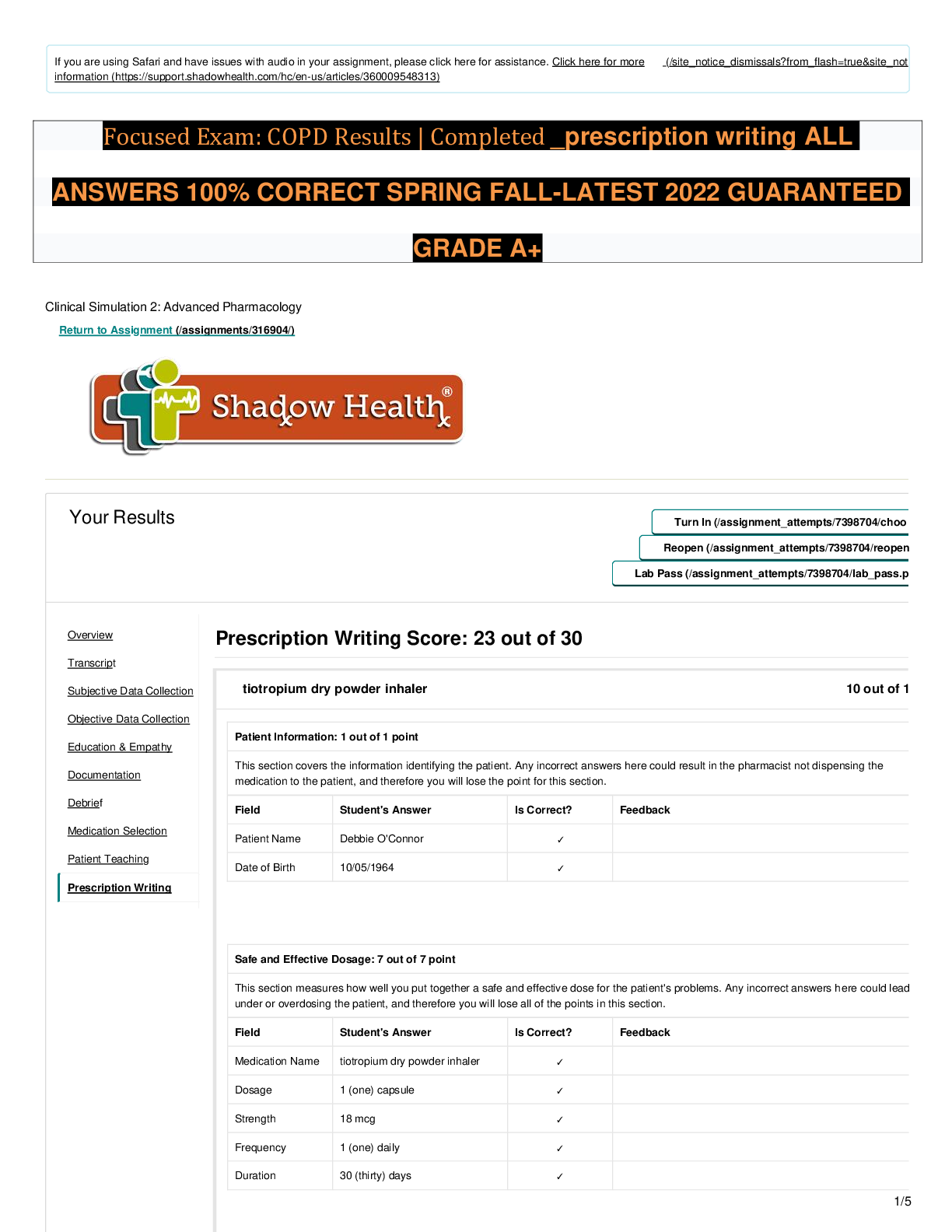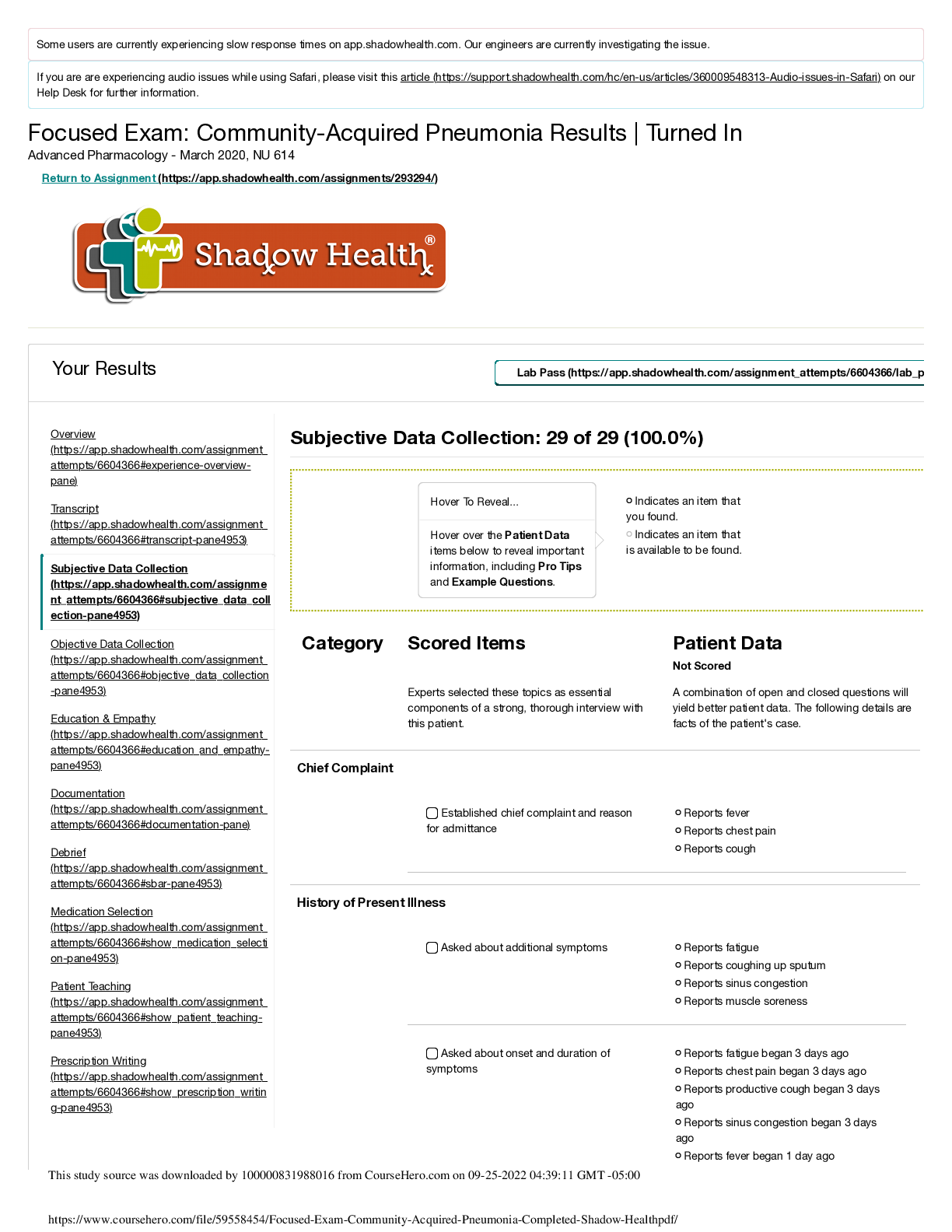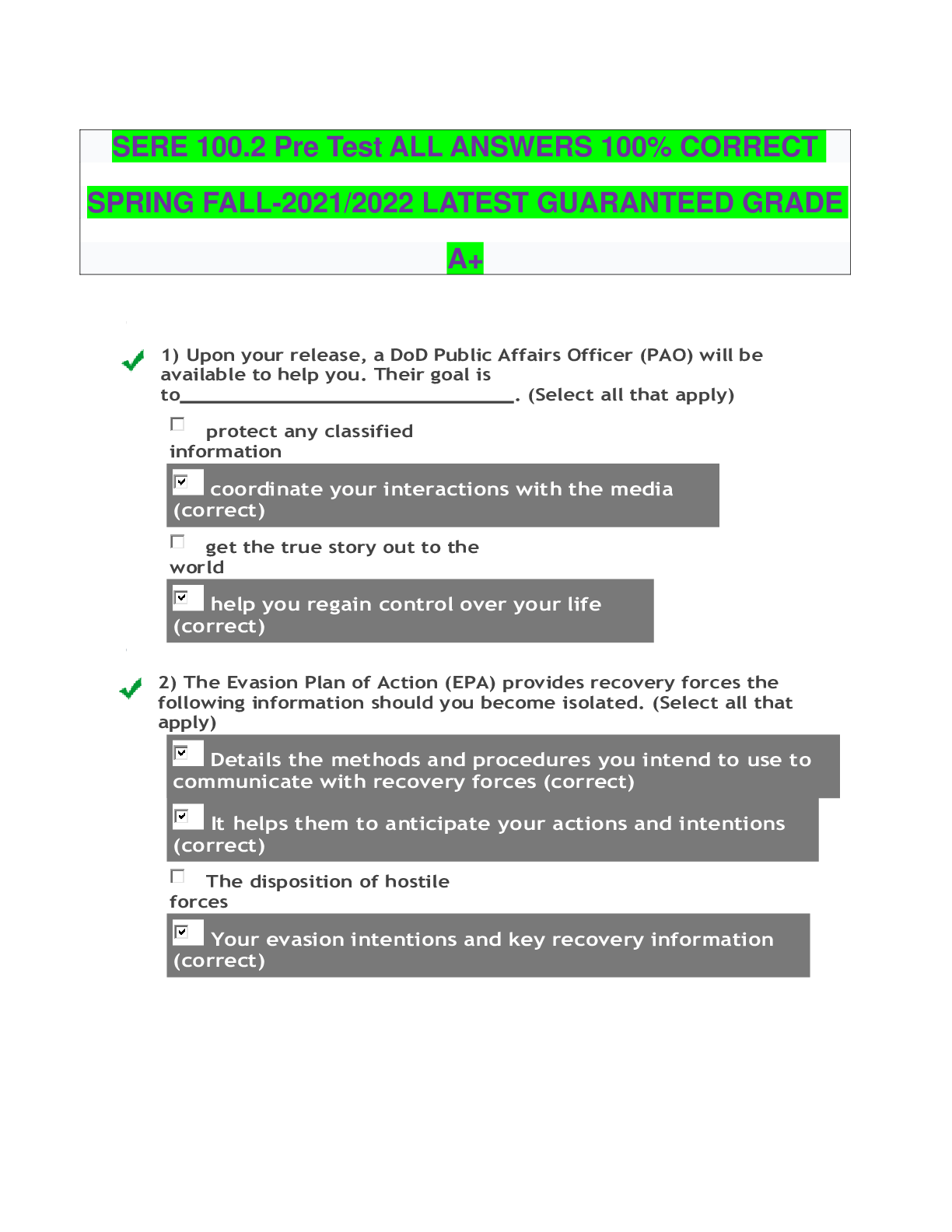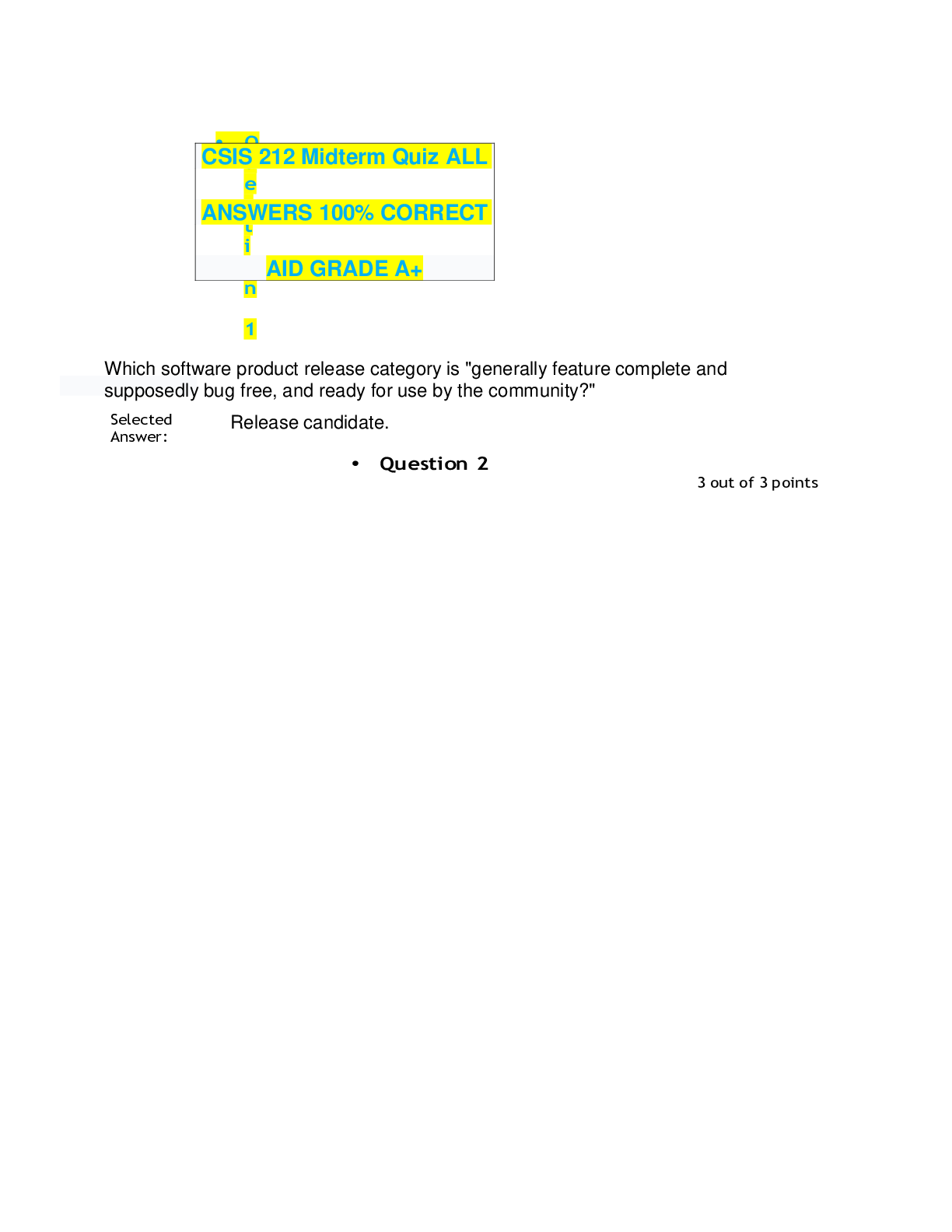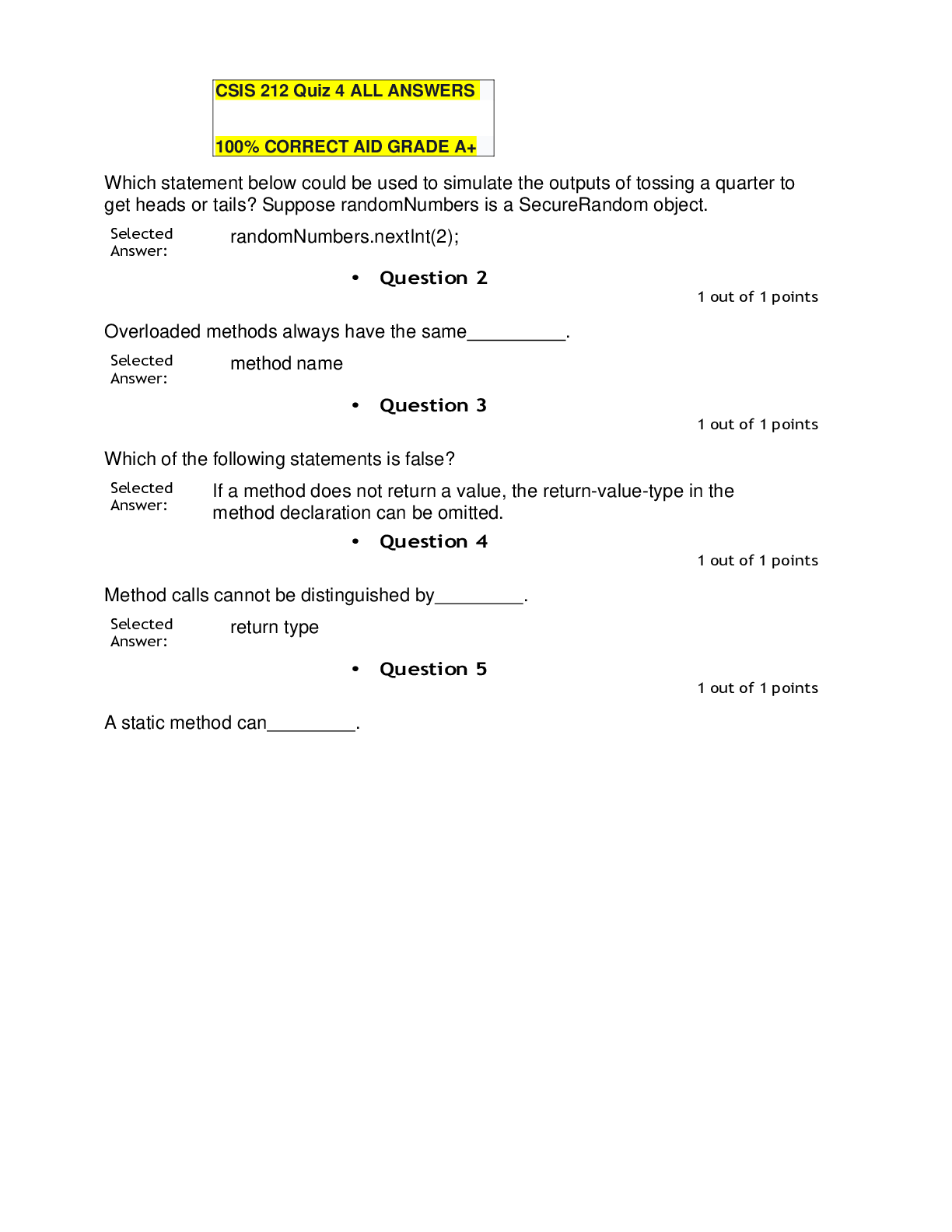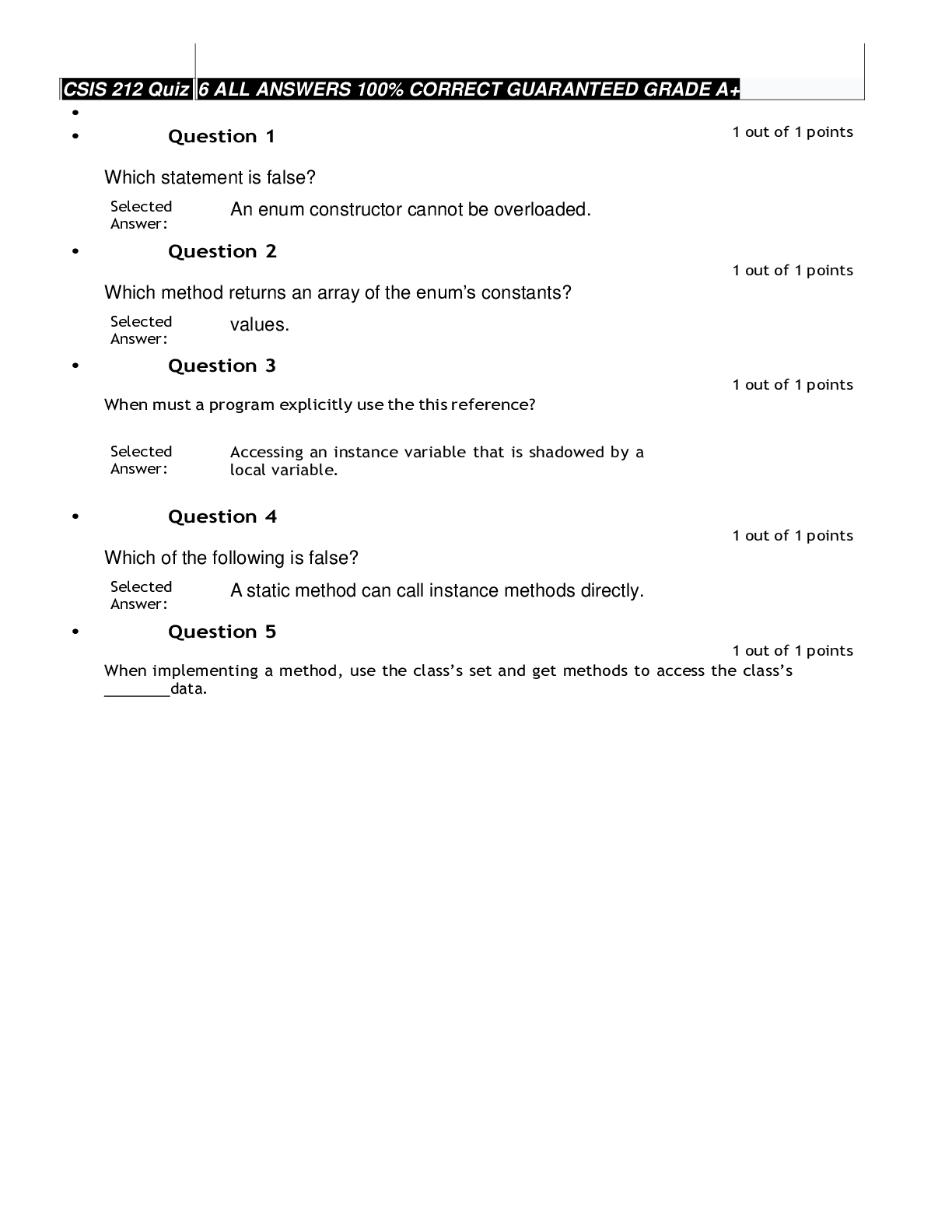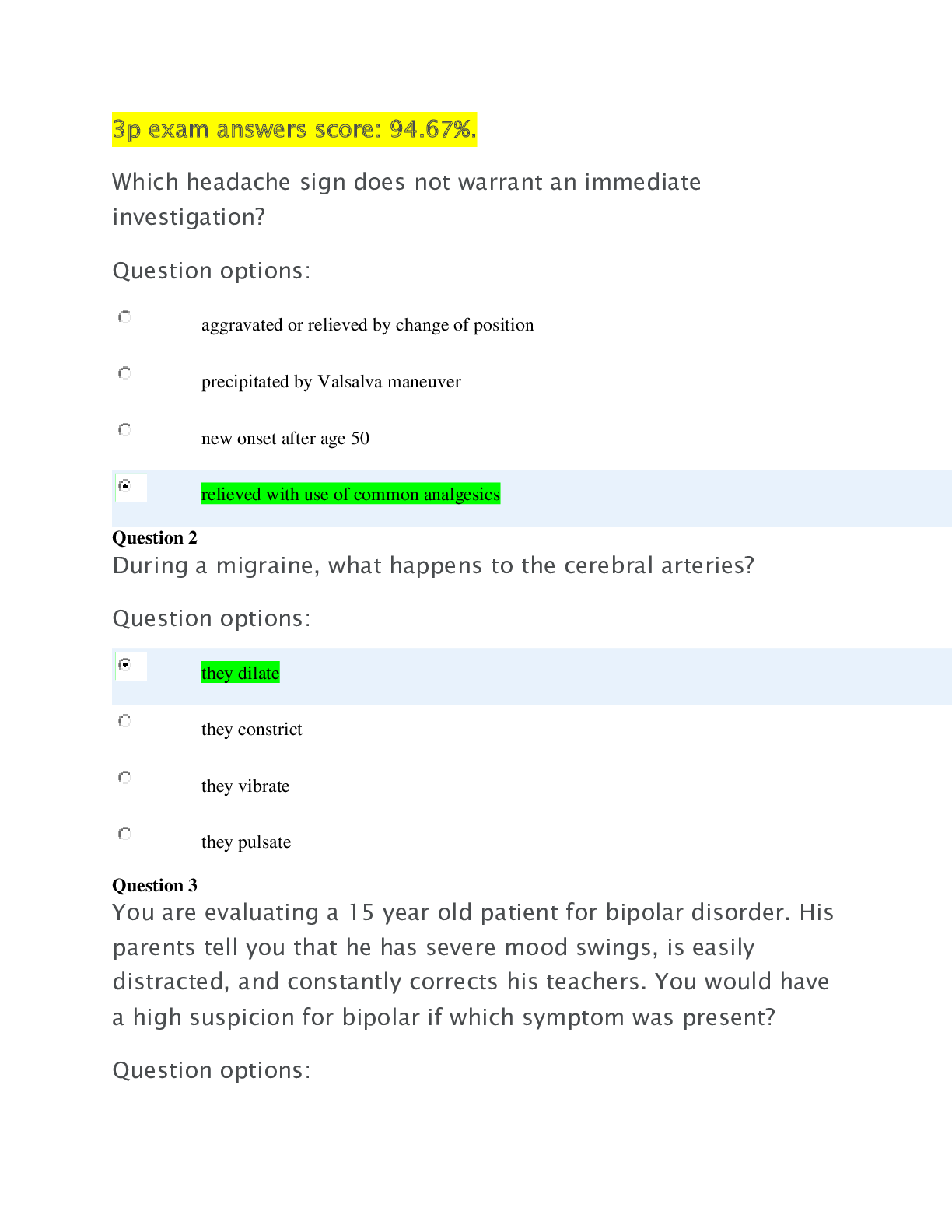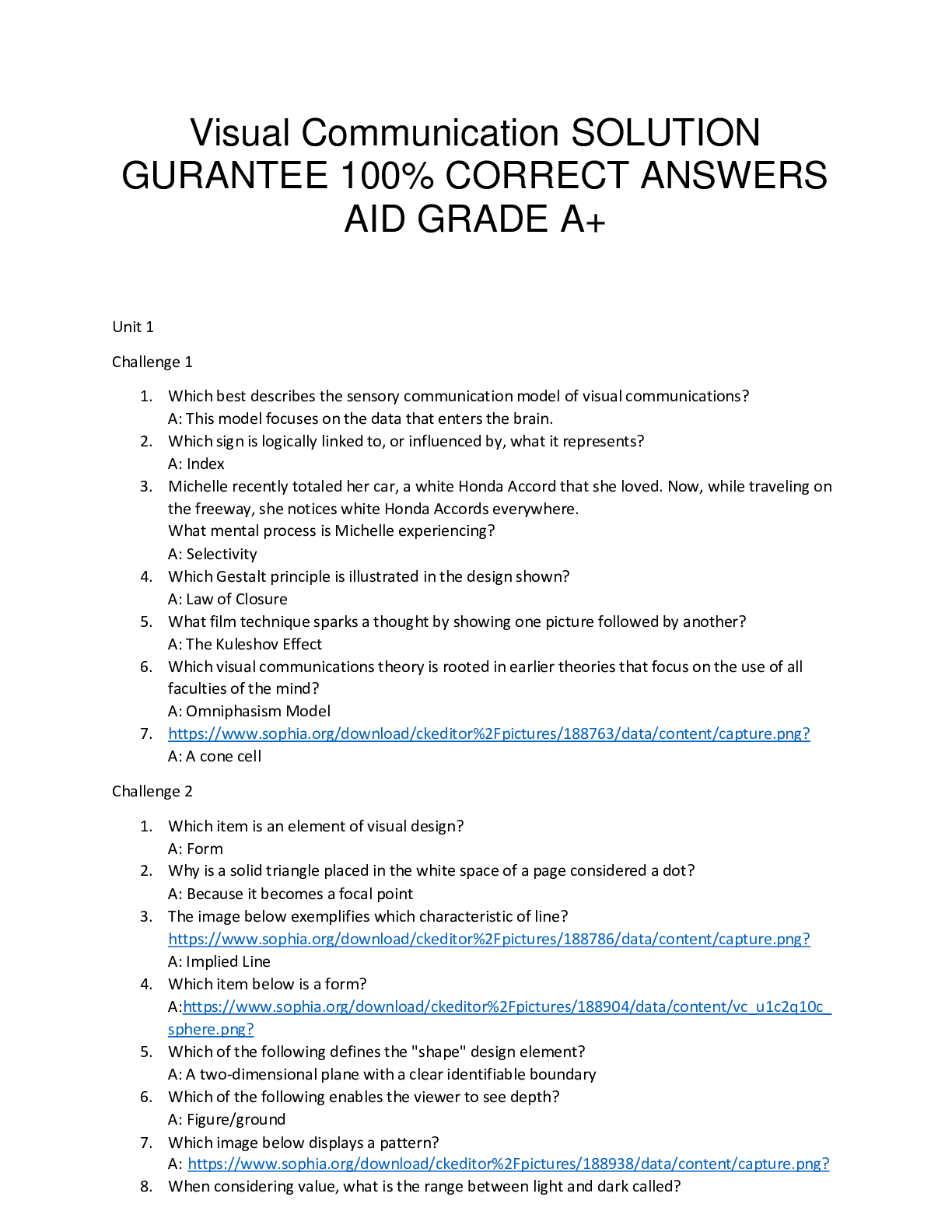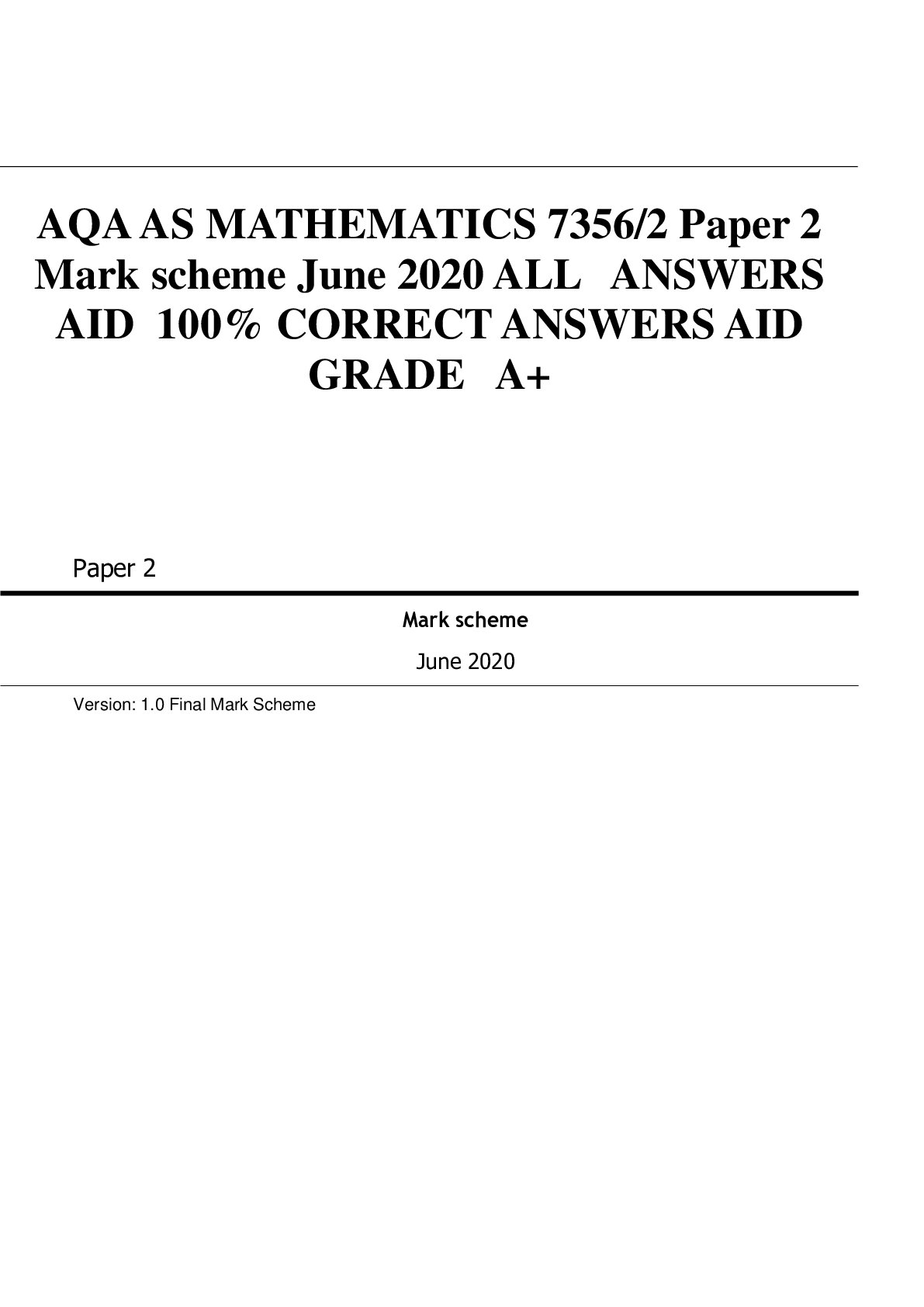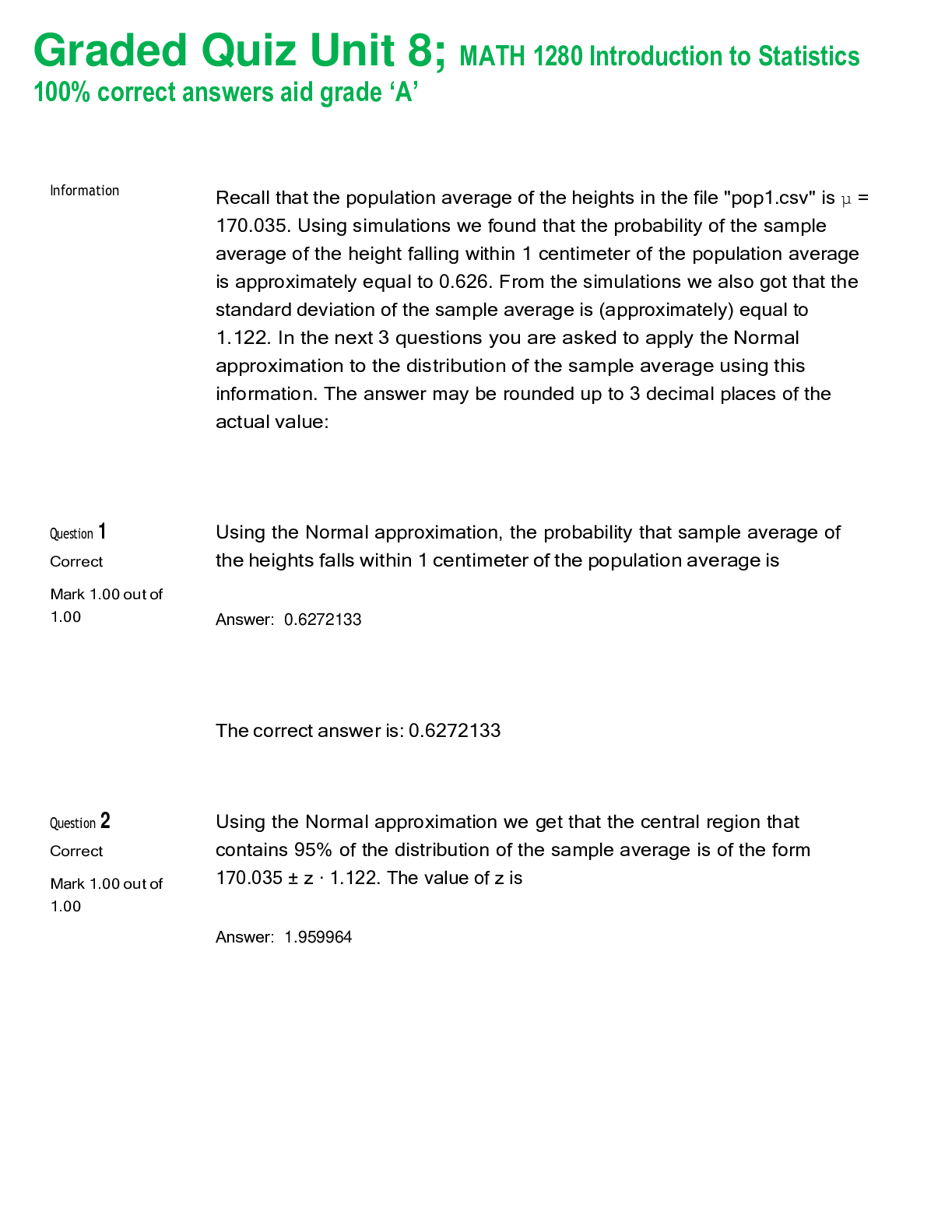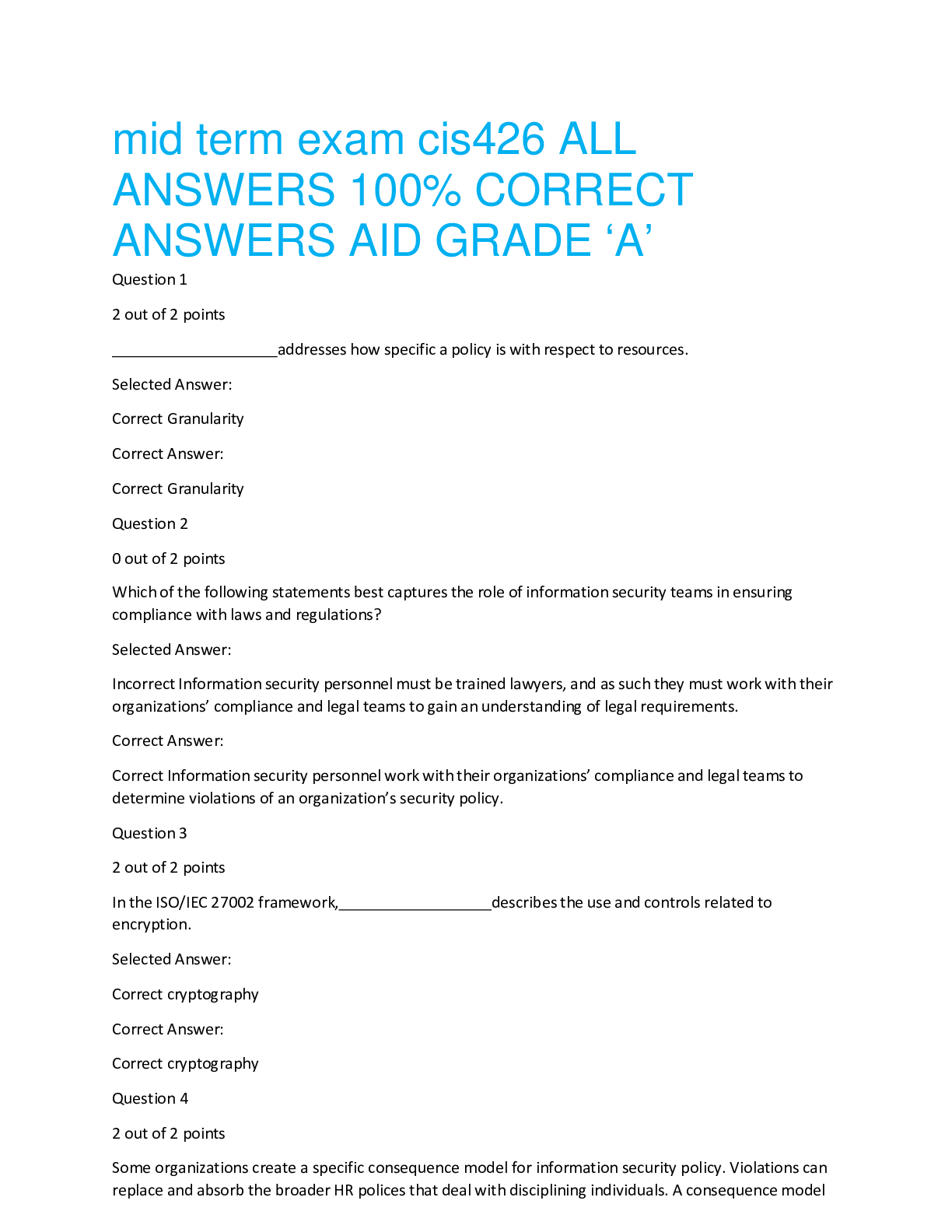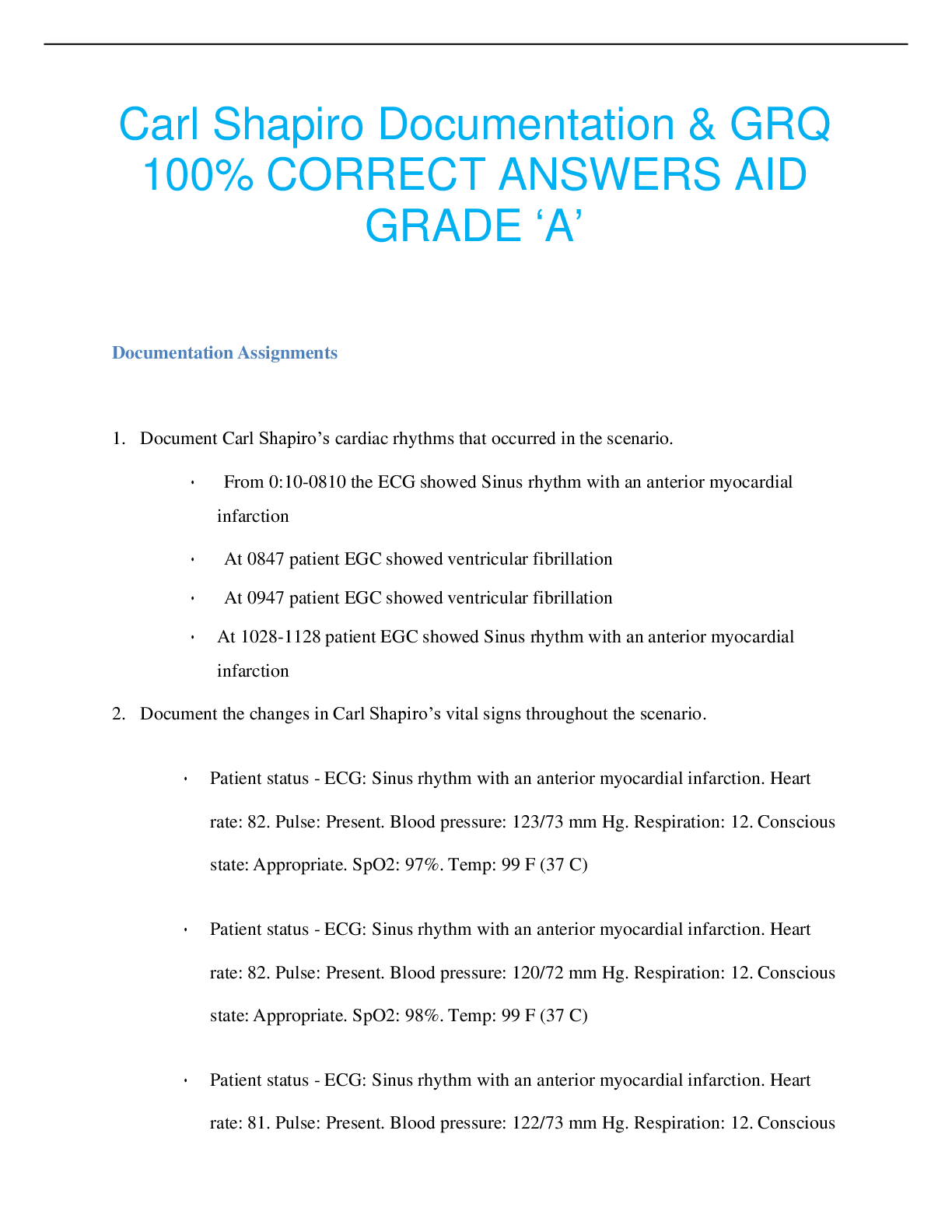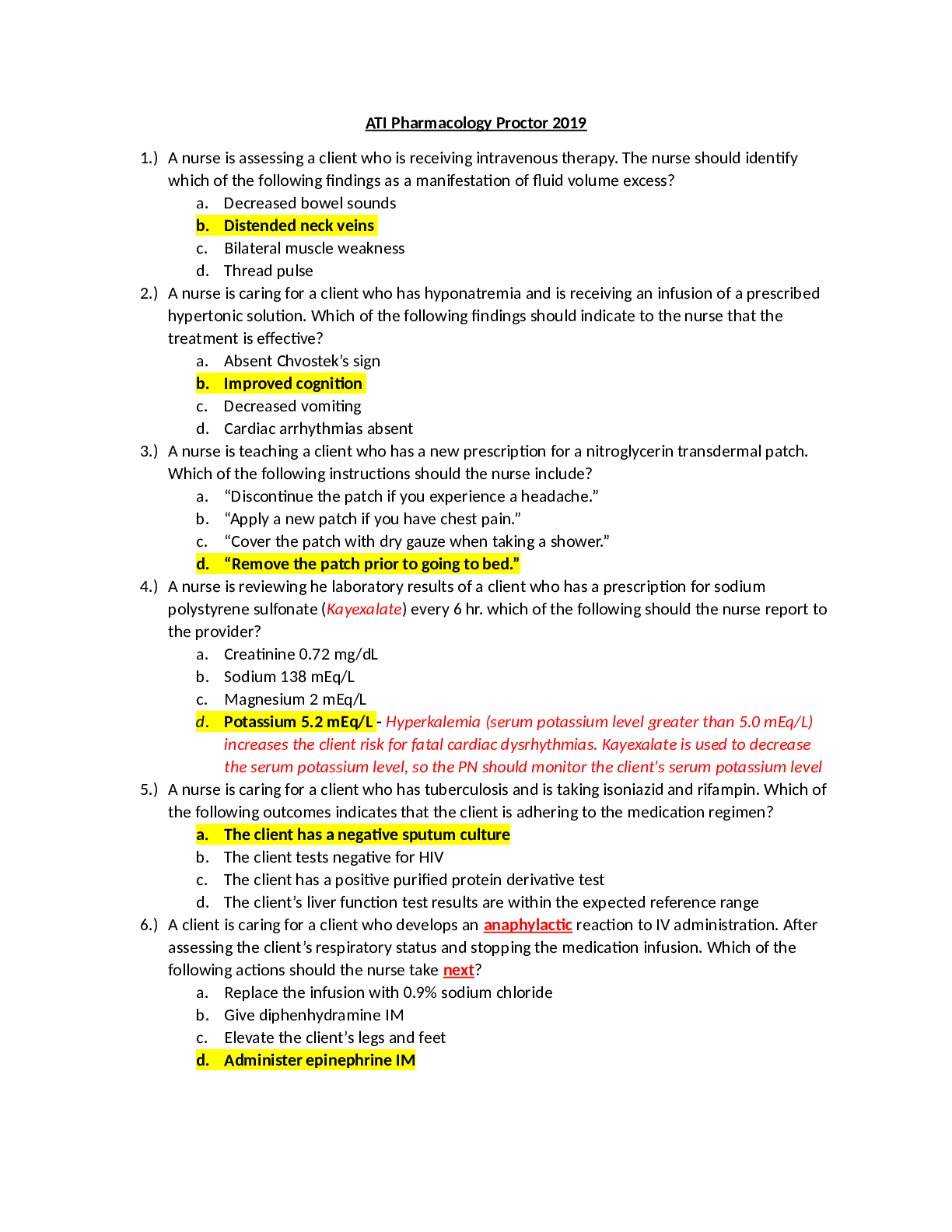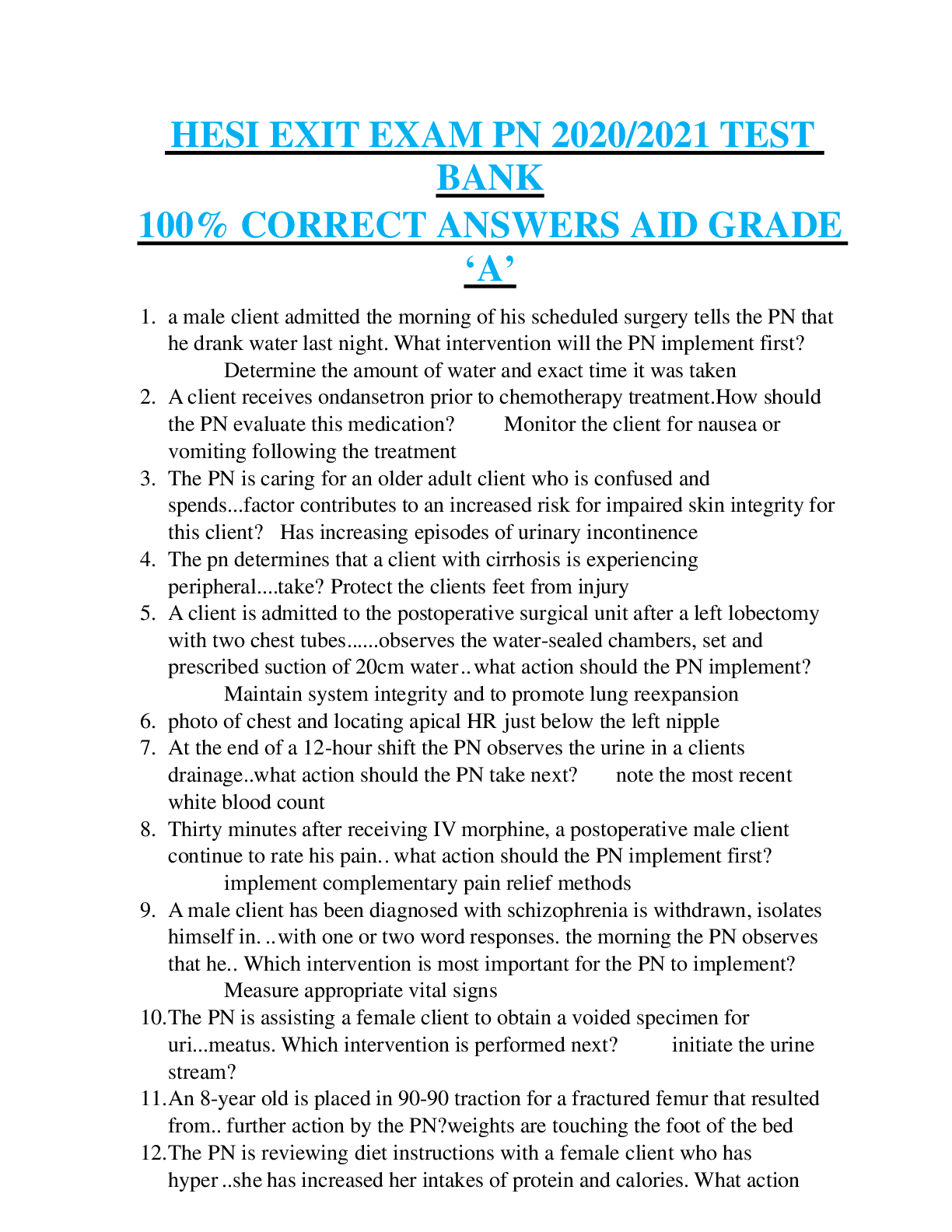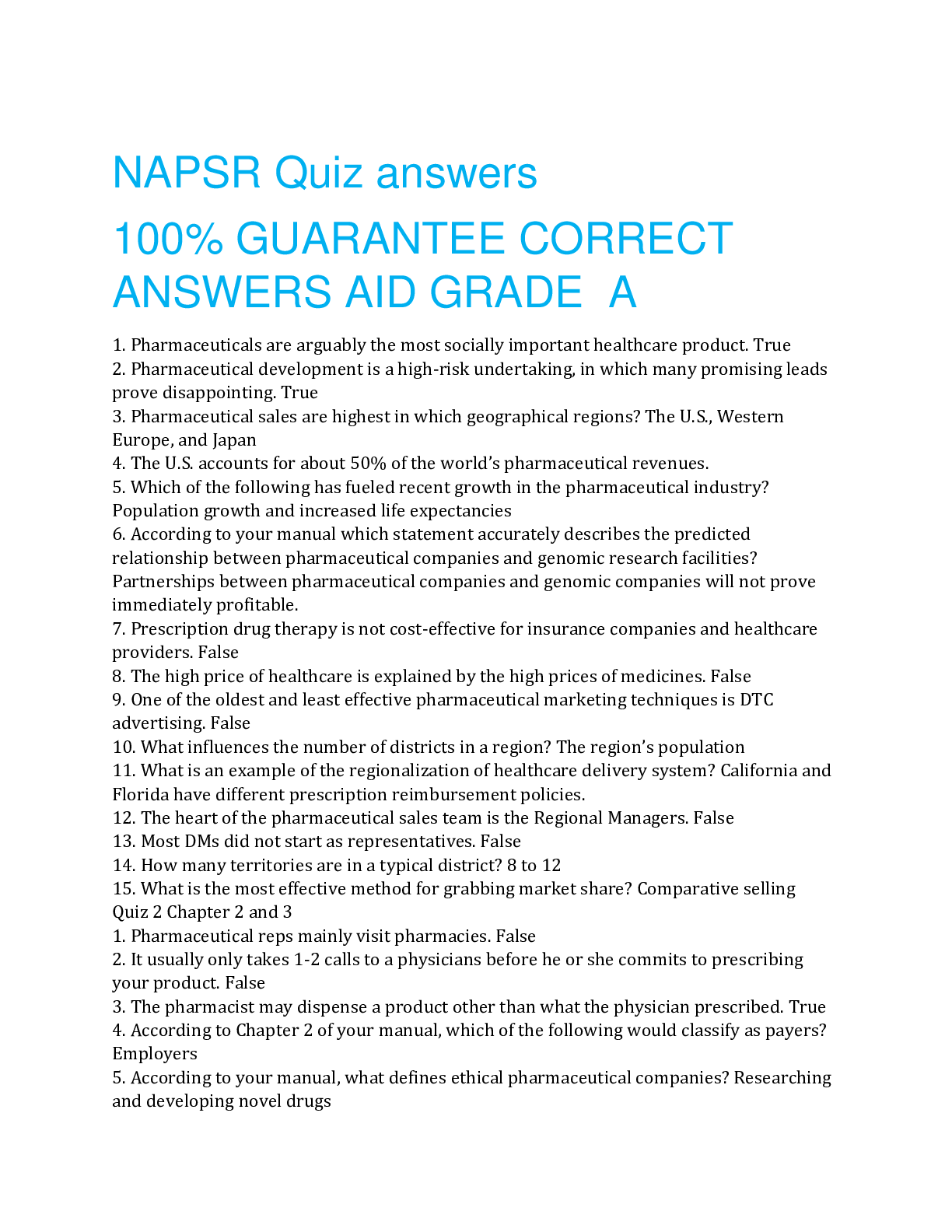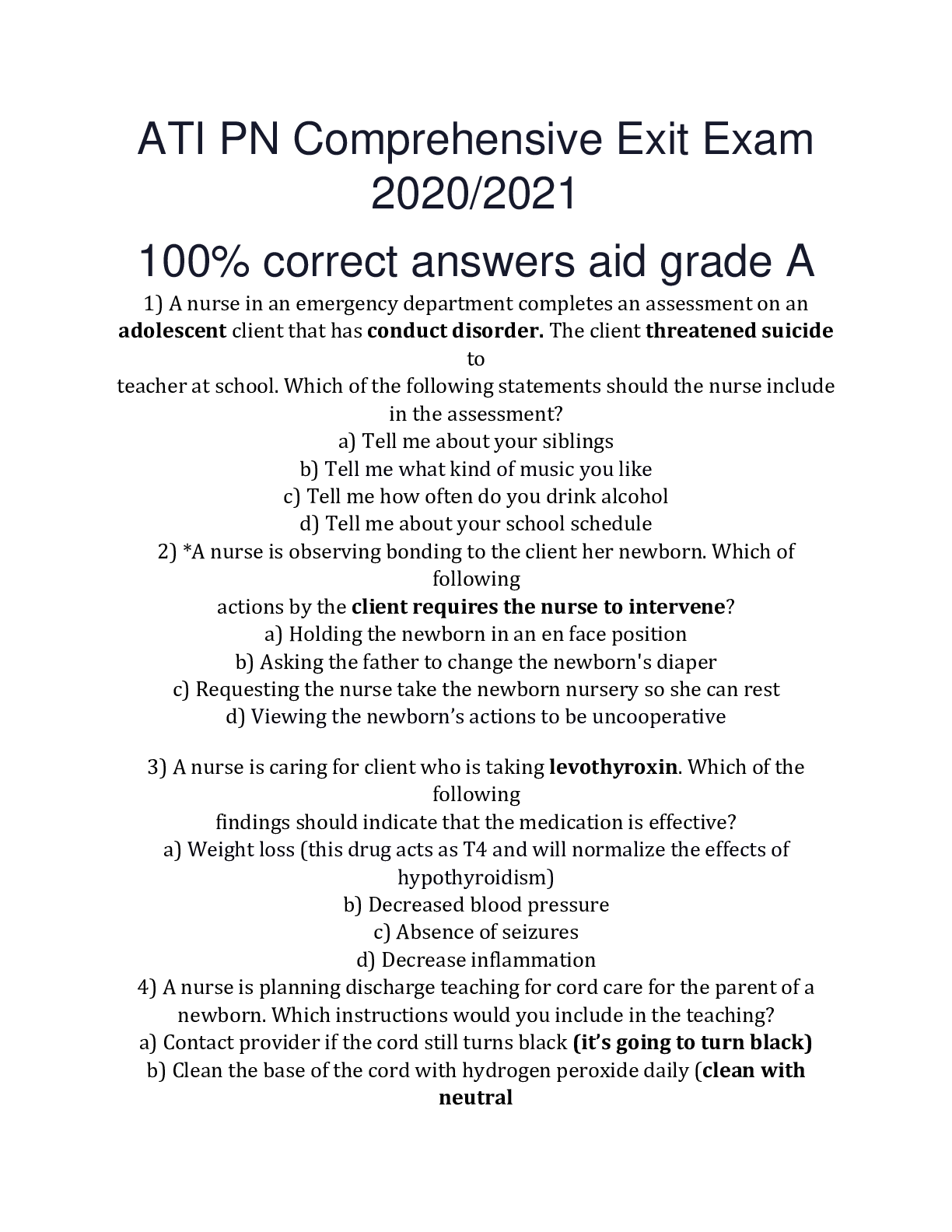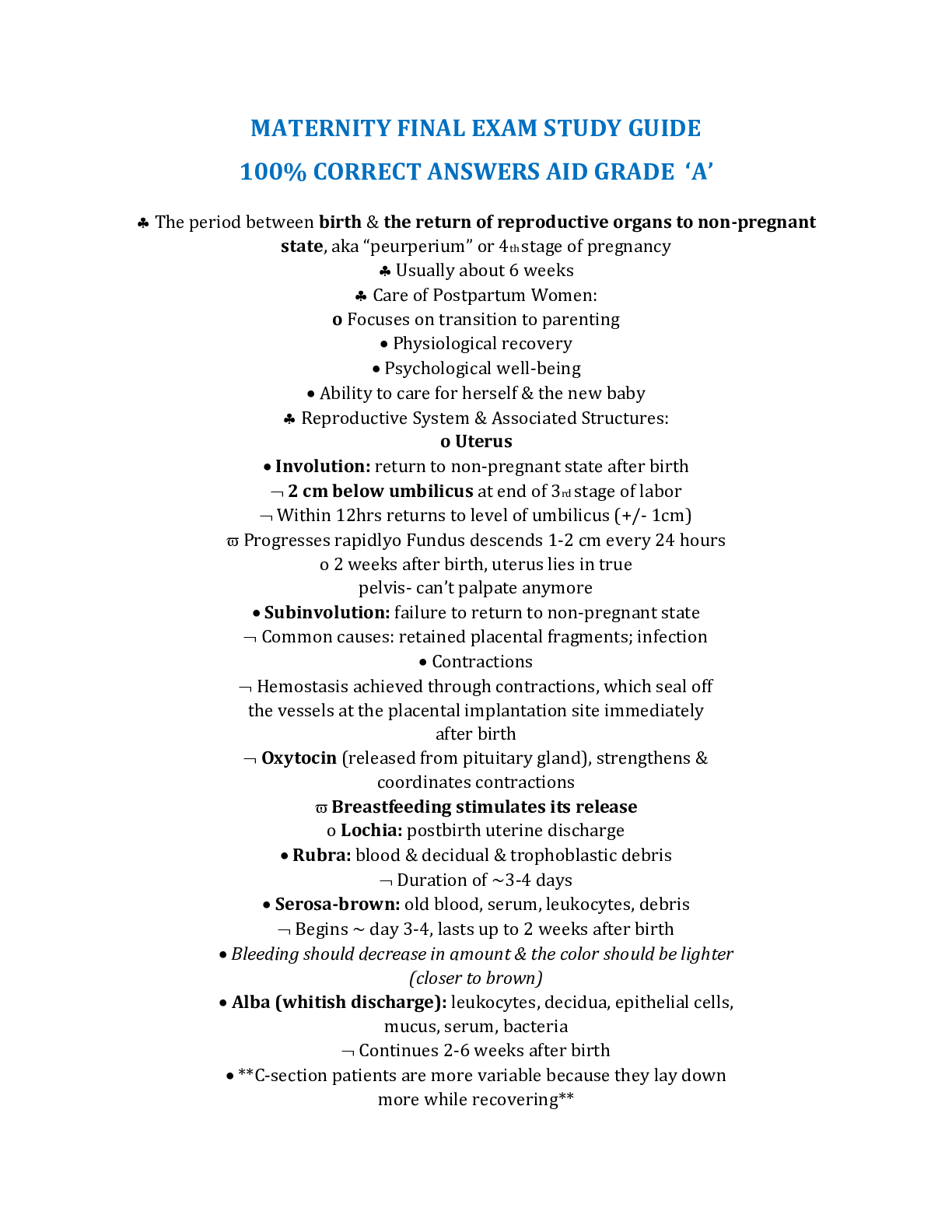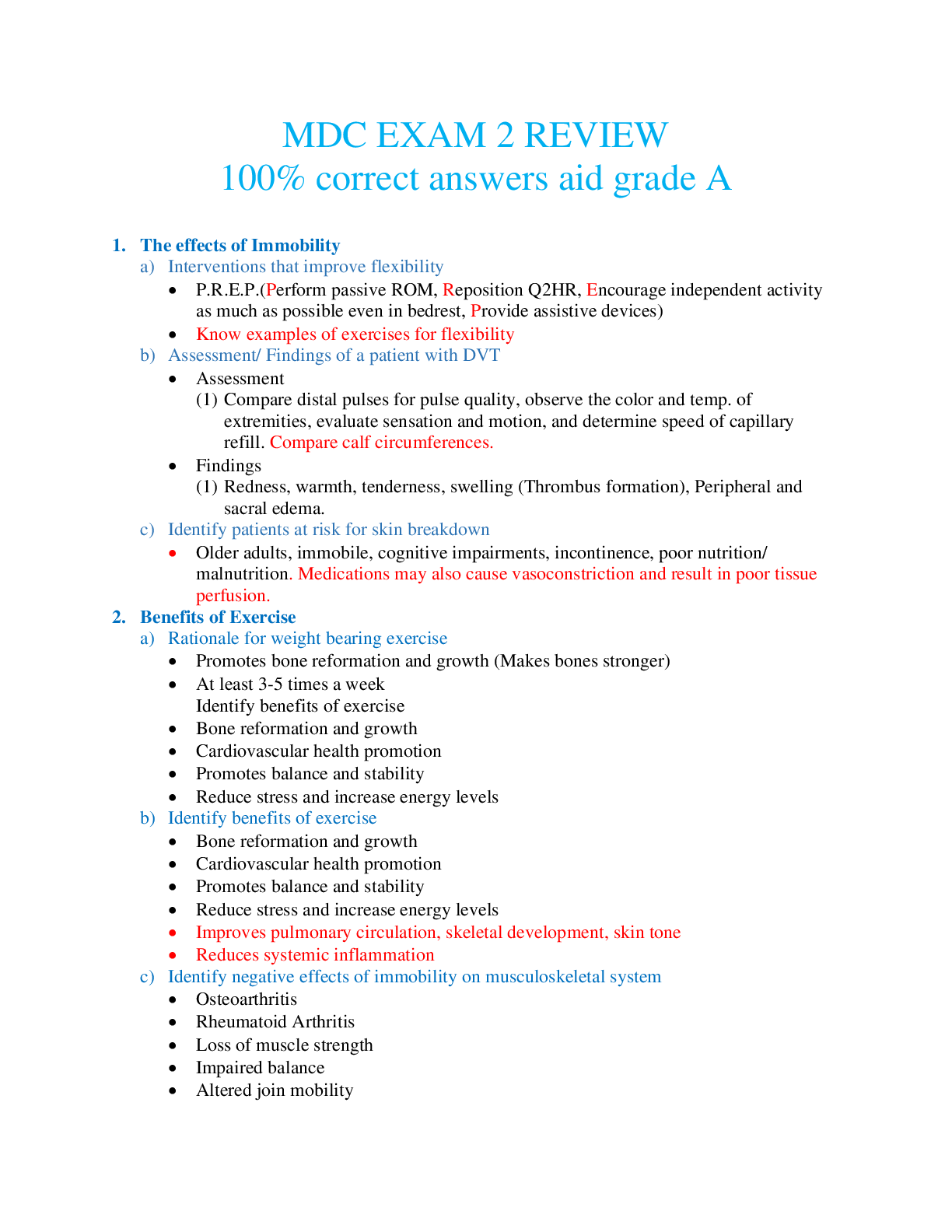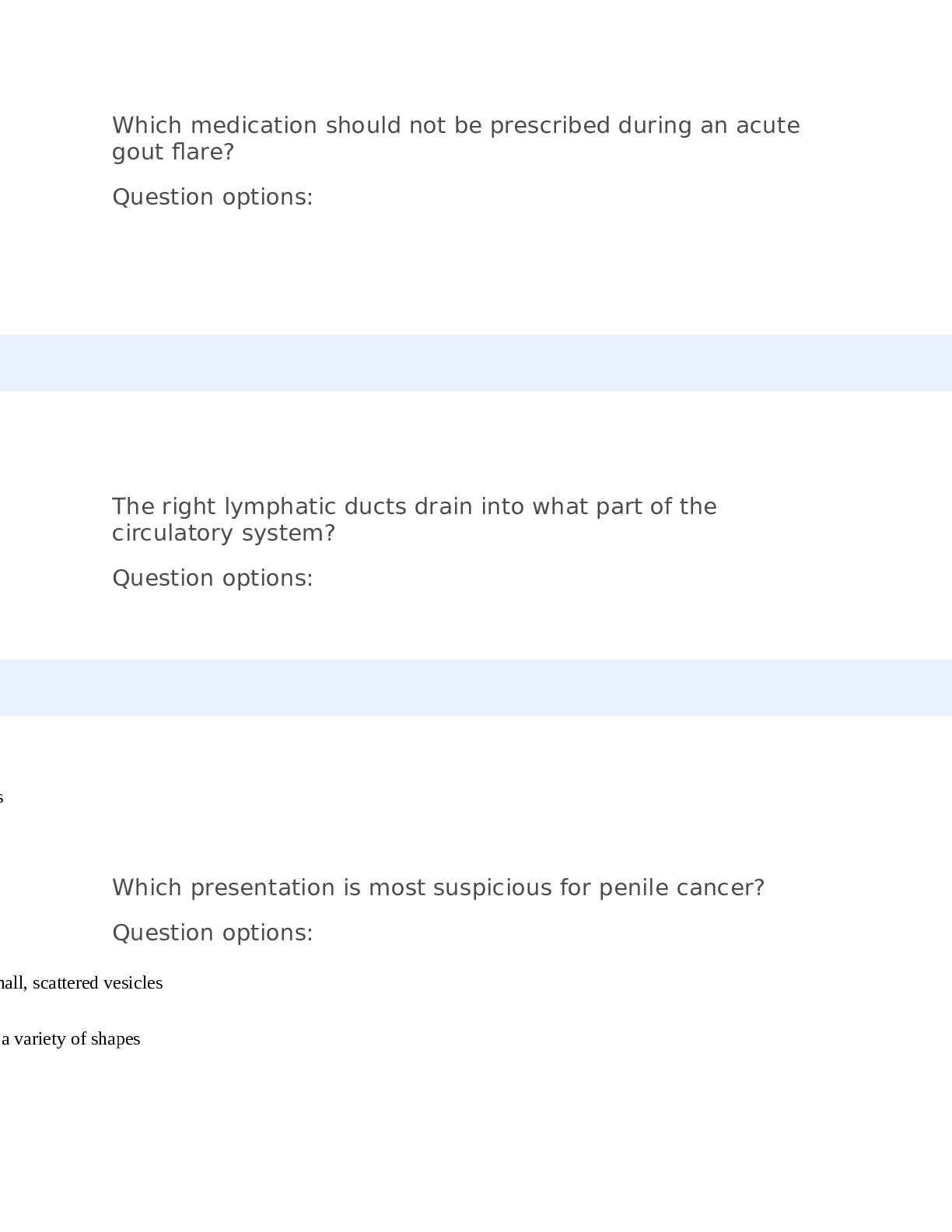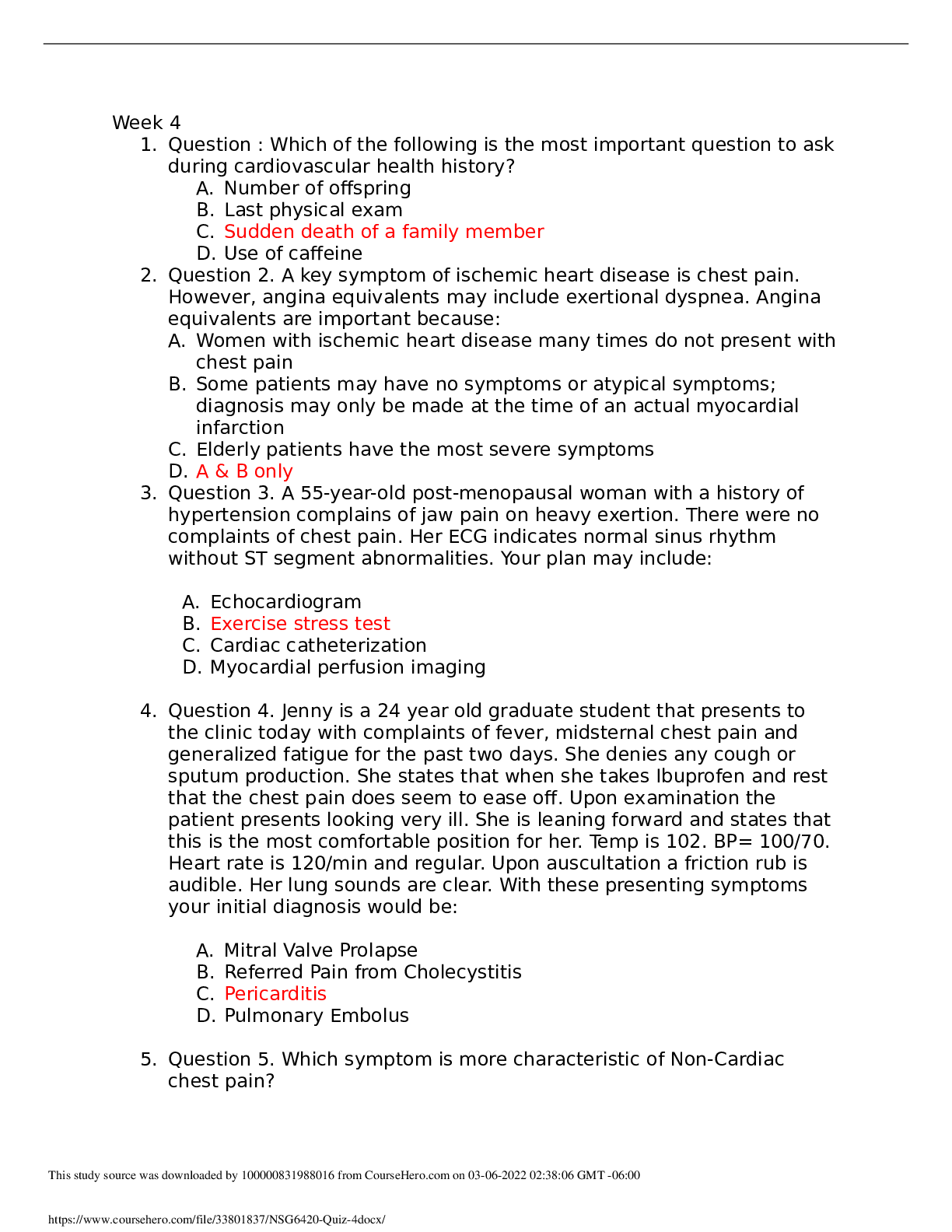Pharmacology > EXAM > ATI Remediation Pharm Final ALL ANSWERS GUARANTEE 100% CORRECT ANSWERS AID GRADE A+ (All)
ATI Remediation Pharm Final ALL ANSWERS GUARANTEE 100% CORRECT ANSWERS AID GRADE A+
Document Content and Description Below
1. SAFETY AND INFECTION CONTROL a. ACCIDENT/ERROR/INJURY PREVENTION i. SAFE MEDICATION ADMINISTRATION AND ERROR REDUCTION: ADMINISTERING PHENYTOIN 1. Undesirable interaction is giving omeprazole, a... proton pump inhibitor, concurrently with phenytoin, an anticonvulsant. This can increase the serum level of phenytoin. Obtain a complete medication history, and be knowledgeable of clinically significant interactions. Be aware that medications can also interact beneficially or harmfully with food and with herbal and dietary supplements ii. ANTIBIOTICS AFFECTING THE BACTERIAL CELL WALL: PRIORITY FINDING AFTER A PENICILLIN INJECTION 1. Instruct clients to take penicillin V, amoxicillin, and amoxicillin-clavulanate with meals. Tell them to take all others with 8 oz of water 1 hr before or 2 hr after meals. Instruct clients to report any signs of an allergic response such as dyspnea, a skin rash, itching, and hives. Give IM injections cautiously to avoid injecting into a nerve or an artery. Advise clients to complete the entire course of therapy, even if symptoms resolve. Advise client to use an additional contraceptive method when taking penicillin’s. iii. REPORTING OF INCIDENT/EVENT/IRREGULAR OCCURRENCE/VARIANCE 1. SAFE MEDICATION ADMINISTRATION AND ERROR REDUCTION: PRIORITY ACTION FOR INCORRECT MEDICATION DOSAGE a. Use a unit-dose system to decrease errors. If not available, calculate the correct medication dose. Check a drug reference to ensure the dose is within the usual range. When performing medication calculations or conversions, have another qualified nurse check the calculated dose. Prepare medication dosages using standard measurement devices, such as graduated cups or syringes. Some medication dosages require a second verifier or witness, such as some cytotoxic medications. Automated medication dispensing systems use a machine to control the dispensing of medications. 2. SAFE MEDICATION ADMINISTRATION AND ERROR REDUCTION: INDENTIFY A SITUATION REQUIRING AN INCIDENT REPORT a. Report all errors, and implement corrective measures immediately. Complete an incident report within the time frame the facility specifies, usually 24 hr. This report should include ■ Client’s identification ■ Name and dose of the medication ■ Time and place of the incident ■ Accurate and objective account of the event ■ Who you notified ■ What actions you took ■ Your signature (or that of the person who completed the report) Do not reference or include this report in the client’s medical record. Medication errors relate to systems, procedures, product design, or practice patterns. Report all errors to help the facility’s risk managers determine how errors occur and what changes to make to avoid similar errors in the future. 3. MISCELLANEOUS CENTRAL NERVOUS SYSTEM MEDICATIONS: TREATMENT FOR MUSCARINIC POISONING a. Extreme muscarinic stimulation can result in increased gastric acid secretion, abdominal cramps, diarrhea, sweating, tearing, urinary urgency, bradycardia and hypotension; bronchoconstriction b. NURSING CONSIDERATIONS ●Instruct clients to report adverse effects if they occur. Monitor for bradycardia and hypotension. ●Administer on an empty stomach to reduce effects. 2. PSYCHOSOCIAL INTEGRITY a. CHEMICAL AND OTHER DEPENDENCIES/SUBSTANCE USE DISORDER i. SUBSTANCE USE DISORDERS: TREATMENT FOR COCAINE TOXICITY 1. 3. PHARMACOLOGICAL AND PARENTERAL THERAPIES i. ADVERSE EFFECTS/CONTRAINDICATIONS/SIDE EFFECTS/INTERACTIONS 1. MYCOBACTERIAL, FUNGAL, AND PARASITIC INFECTIONS: INTERPRETING SIDE EFFECTS OF RIFAMPIN a. Rifampin accelerates metabolism of warfarin, oral contraceptives, protease inhibitors, and non-nucleoside reverse transcriptase inhibitors (NNRTIs) for HIV, resulting in diminished effectiveness. b. NURSING CONSIDERATIONS ● Increased dosages of HIV medications are often necessary. ● Monitor PT and INR. ● Advise clients to use a non-hormonal form of contraception. 2. CHRONIC NEUROLOGIC DISORDERS: ADVERSE EFFECTS OF PHENYTOIN a. CNS effects ●Nystagmus, sedation, ataxia, double vision, cognitiveimpairment b. NURSING CONSIDERATIONS: Monitor for manifestations of CNS effects, and notify the provider if they occur. Gingival hyperplasia ●Softening and overgrowth of gum tissue, tenderness, and bleeding gums NURSING CONSIDERATIONS: Advise clients to maintain good oral hygiene (dental flossing, massaging gums). Folic acid supplements can decrease the occurrence. Skin rash [Show More]
Last updated: 1 year ago
Preview 1 out of 12 pages

Reviews( 0 )
Document information
Connected school, study & course
About the document
Uploaded On
Oct 05, 2021
Number of pages
12
Written in
Additional information
This document has been written for:
Uploaded
Oct 05, 2021
Downloads
0
Views
45


